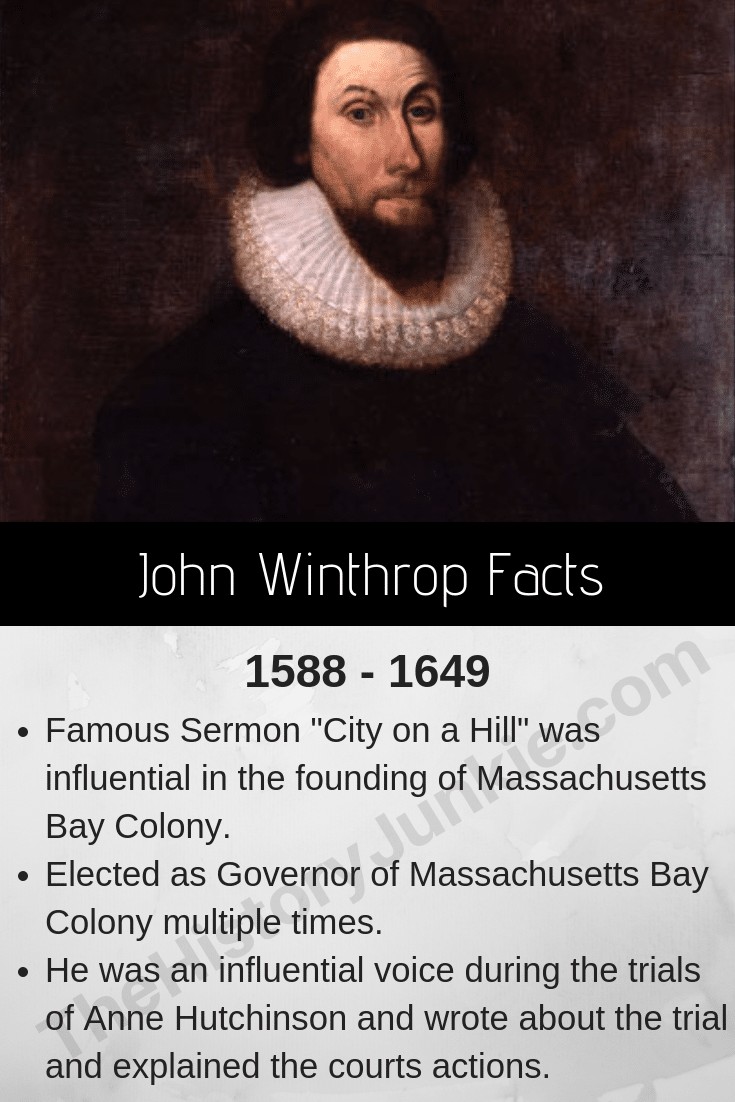The story of Winthrop's family is both tragic and rewarding. He had four wives, three of them died before him. He married his first wife, Mary Forth, when he was 18 years of age.

He and his young wife would go on to have six children, including John Winthrop Jr., who became governor of Connecticut.
10 years after he and Mary exchanged vows, she died. Winthrop moved on quickly and married his second wife, Thomasine Clopton, in December of 1615. They were married for a year before she tragically died in December of 1616.
Jump to:
Two years later, in 1618, Winthrop married again. He married Margaret Tyndal in April of 1618. It would be his wife Margaret that would migrate to New England with him.
However, she passed away in June of 1631. His last marriage took place in 1647 to the widow Martha Coytmore.
She would survive him and give him one son.
Contributions
Although he has been forgotten through time, John Winthrop wrote many influential writings about religion, government, and history. Winthrop wrote and delivered a sermon titled A Model of Christian Charity.
It contained the phrase "City upon a Hill," which comes from Jesus' sermon on the mount. In this sermon, Winthrop argued that the emigration of the Puritans to the Massachusetts Bay Colony was a special pact with God to develop a holy community.
He also wrote Experiencia, which talked about the Christian Experience.
Winthrop was the first governor of Massachusetts Bay. During this time, he kept a journal, which is now under the title "The History of New England." Winthrop's journal is one of the greatest historical writings of New England.
This, along with Plymouth Colony's Governor William Bradford's "Of Plymouth Plantation," Cotton Mather's "Magnalia Christi Americana," and Edward Johnson's "Wonder-Working Providence of Sions Saviour in New England" are among the writings that helped define New England's influence in Colonial America.
He also was an influential voice during the Anne Hutchinson controversy.
He wrote "A Short Story of the Rise, reign, and ruin of the Antinomians, Familists, and Libertines, that Infected the Churches of New England" which told the story of the Antinomian controversy surrounding Anne Hutchinson in Massachusetts Bay Colony.
The influential Puritan leader and Massachusetts Bay Governor died at his home on March 26, 1649.
